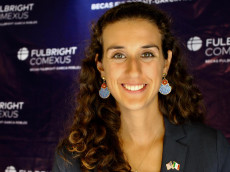In Uganda, of a population of 46 million people, only 920,000, or 2% of the population, are vaccinated. Compared to the United States, where 60% of the population is fully vaccinated, that is an incredibly small number. Largely as a result of the slow vaccine rollout, in addition to high rates of autoimmune diseases, elevated levels of poverty, and lack of access to adequate healthcare, the pandemic continues to wreak havoc in this East African country as it fades into the rearview mirror of wealthy nations.
As of July 12, 2021, Uganda has received 1.04 million COVID-19 vaccine doses from COVAX, a joint initiative by CEPI, Gavi, and WHO to supply third-world countries with voluntarily donated COVID-19 vaccines. Initially, COVAX was sourced in large part by the Serum Institute of India, but in May India halted vaccine exports to combat an extreme rise in cases caused by the Delta variant. COVAX receives its funding from donor governments, multilateral organizations, and prepayments from self-financing countries. These contributions allow 92 low-income countries to receive fully-funded vaccines, including Uganda.
But, COVAX is not supplying nearly enough vaccines; as of June 2021, COVAX has delivered only 90 million out of a promised 2 billion doses. According to Victoria Nyanjura, an activist for women’s empowerment in northern Uganda, the UN system is to blame for the lack of vaccines. “Can [the UN system] support developing countries and do more to make sure they have enough vaccines? They have failed to respond to [COVID-19].” Indeed, the world’s richest countries have secured enough planned deliveries of approved doses to cover their populations more than 4.5 times over, with only 0.3% of total doses going to low income countries.
Unless the proposed waiver of the Trade-Related Aspects of Intellectual Property Rights (TRIPS) is approved by the World Trade Organization (WTO), lower and middle-income countries (LMICs) will be forced to rely on the goodwill of wealthy nations for vaccines, which is in shorter supply than the vaccines themselves. As things currently stand, pharmaceutical companies such as Pfizer possess water-tight patents on their vaccines, meaning that manufacturers in other countries do not have the freedom to produce COVID-19 vaccines and other health technologies without the fear of infringing upon another party’s intellectual property (IP) rights.
Despite the fact that all vaccine manufacturers in the global north were publicly-funded, companies such as Moderna are making enormous profits from vaccine sales. The bottom line is that pharmaceutical companies are profiting from LMICs’ inability to produce their own vaccines. In the words of public health activist Achal Prabhala, “the lack of vaccines elsewhere in the world is something that [these manufacturers] have allowed to happen, and will profit from themselves in the future because there will be a market for different variants in the future.”
So far, the WTO has towed the line between waiving vaccine patents and protecting intellectual property by stressing the importance of voluntary licensing. However, of the 15 COVID-19 vaccine manufacturers worldwide, only Gilead Sciences and Merck have agreed to voluntary licensing agreements — with five generic companies in India and Pakistan in the case of the former, and with five generic companies in India in the case of the latter. Local vaccine manufacturers throughout the entire continent of Africa still do not have the rights to produce COVID-19 vaccines under the voluntary licensing scheme. Clearly, more has to be done.
The seven governments that currently oppose the TRIPS waiver proposal, including the UK, Australia, Brazil, Japan, Norway, Switzerland, and the EU, must drop their opposition and support the waiver as soon as possible in order to effectively and equitably combat the global pandemic, and save millions of lives. In the face of a global health emergency, the right to health and the right to life trump the right to intellectual property. If TRIPS is not waived, it will continue to be, in the words of World Bank Chief Economist Joseph Stiglitz, “a death warrant for thousands of people in the poorest countries of the world.”
Posted By Anna Braverman
Posted Jul 16th, 2021


1 Comment
Matthew Nyanplu
July 19, 2021
Of course Anna, I do support the waiving of patents of COVID vaccines, else health, as we have seen already, has been commoditized. In a pandemic, the overriding objective is to save lives and I would hope that profit will come second while saving lives will come first. The countries that are currently opposed to waiving patents need to consider the historical imbalances plaguing our world and choose the side of equity. The pandemic is upon us, and as a common humanity, we must fight it off together.